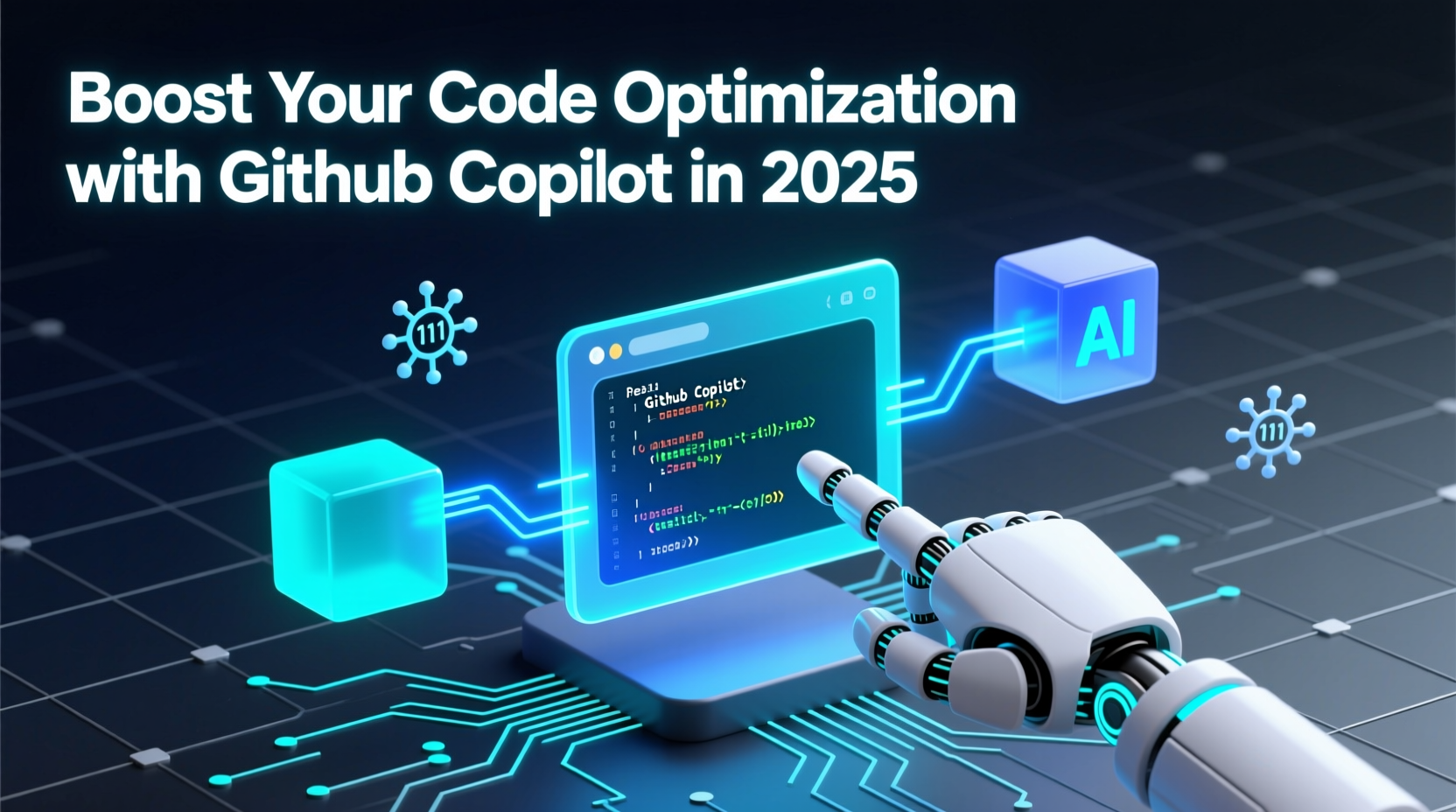Exploring the Landscape of Code Optimization in Modern Software Development
In the constantly evolving world of software development, optimizing existing code is an essential task that significantly impacts the performance, scalability, and maintainability of applications. Whether working on a small project or a large-scale enterprise application, finding ways to improve code efficiency is vital. Enter GitHub Copilot, a powerful AI-driven tool that transforms how developers approach code optimization. This article delves into the significance of code optimization and ways to leverage GitHub Copilot to streamline and enhance the code optimization process, ensuring the codebase remains efficient, clean, and future-proof.
Understanding the Imperative of Code Optimization
Before diving into how GitHub Copilot can revolutionize the code optimization process, it's crucial to understand why optimizing code is critical in software development. Code optimization is not solely about speeding up execution; it involves enhancing multiple facets of software quality, including readability, resource management, and long-term maintainability. Poorly optimized code can lead to sluggish performance, increased operational costs, and even introduce security vulnerabilities, all of which can tarnish the user experience and hinder business success. As software projects grow in scale and complexity, the need for systematic code reviews and optimizations becomes more pronounced.
Enhancing Readability and Maintainability
One of the primary goals of code optimization is to improve the readability and maintainability of the codebase. Clear and concise code is easier to understand, modify, and extend, which is crucial as projects evolve over time. Optimized codebases also tend to be more consistent, adhering to established coding standards and patterns. This consistency reduces the learning curve for new team members and minimizes the risk of introducing bugs during maintenance.
Reducing Resource Consumption
Efficient code utilizes system resources more effectively, which is particularly important in environments where resources are limited or costly. By optimizing code to consume fewer CPU cycles, less memory, and fewer network resources, developers can create applications that are faster and more cost-effective to run. This efficiency is especially critical in cloud-based applications where resource usage directly translates to operational costs.
Ensuring Security
Security is another key aspect of code optimization. Well-optimized code is less likely to contain hidden vulnerabilities that could be exploited by malicious actors. By eliminating unnecessary code paths, simplifying logic, and ensuring that security best practices are followed, developers can significantly enhance the security posture of their applications.
Leveraging GitHub Copilot for Automated Code Reviews
One of the transformative features of GitHub Copilot is its capability to conduct automated code reviews. Unlike traditional methods dependent on human judgment which can be prone to subjectivity and delays, GitHub Copilot employs sophisticated AI algorithms to scrutinize your codebase meticulously. This process helps pinpoint issues, including inefficiencies, redundancies, and security vulnerabilities, thereby streamlining the optimization process.
| Feature | Description |
|---|---|
| Automated Code Reviews | AI-driven reviews highlight inefficiencies, redundancies, and vulnerabilities. |
| Real-Time Feedback | Provides immediate suggestions during coding to enhance efficiency. |
| Context-Aware Refactoring | Suggests refactoring steps considering the broader context of the codebase. |
Real-Time Feedback Mechanism: The real-time feedback provided by GitHub Copilot while coding is a game-changer. As you type, the tool analyzes the context and syntax of your code, instantly suggesting corrections or improvements, facilitating a smoother coding experience.
Using GitHub Copilot for Smart Code Refactoring
Refactoring is a fundamental aspect of code optimization, aimed at enhancing the internal structure of the codebase without altering its external behavior. This practice is crucial for maintaining code quality and ensuring applications remain robust and scalable over time.
Ensuring Safe and Thorough Refactoring
Safety and thoroughness in refactoring efforts are paramount, and GitHub Copilot excels in these areas by continuously monitoring the codebase for potential issues. The proactive approach minimizes the risk of introducing new bugs or regressions during the refactoring process.
Enhancing Performance with AI-Powered Insights
Modern applications often grapple with achieving optimal performance while maintaining scalability and efficient resource usage. Identifying and addressing bottlenecks within complex codebases can be daunting, but tools like GitHub Copilot offer features to uncover and resolve performance issues efficiently.
By integrating GitHub Copilot into your development workflow, developers can leverage its AI capabilities to identify and resolve performance bottlenecks, continuously monitor and optimize resource usage, ensuring the application remains fast, scalable, and efficient.
Conclusion
Optimizing existing code is a continuous journey demanding technical acumen and meticulous attention. GitHub Copilot emerges as a formidable partner in this pursuit, transforming the way developers approach code excellence. By automating code reviews, guiding smart refactoring, and delivering AI-powered performance insights, GitHub Copilot elevates the standards of code efficiency and maintainability.











 浙公网安备
33010002000092号
浙公网安备
33010002000092号 浙B2-20120091-4
浙B2-20120091-4